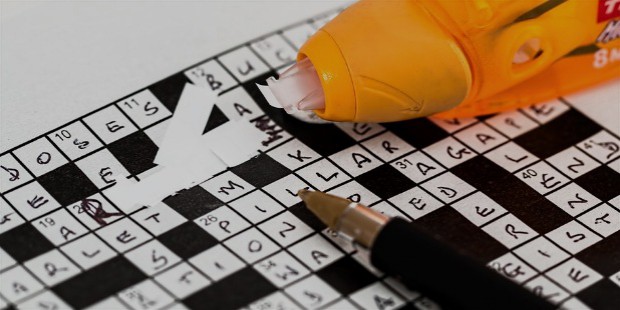Smart Goals To Reduce The Risk Of Alzheimer’s

Alzheimer’s is one of the most common forms of dementia seen mostly in the older population. While the disease is usually detected when you’re old, its symptoms start showing early, probably when the patient is in their 40s or 50s. Alzheimer’s affects the memory power of the brain severely.
A person suffering from the disease cannot complete a simple conversation, doesn’t recognize their own family and friends, and often cannot react to their surroundings.
Although the primary cause of Alzheimer’s is old age and genetics, it has now been found that 1 in every 20 people who have the disease are under 50. Other factors that put you in the high-risk category include Down’s syndrome, previous head injuries, cardio-vascular diseases such as diabetes, cholesterol, high blood pressure, and obesity.
Most people believe that Alzheimer’s cannot be prevented, however, contrary to this popular belief, a healthy lifestyle and diet can go a long way in preventing the disease and even slowing down its advancement.
Read on to know how setting a few smart goals in life, can give you the power to decide to not be affected by Alzheimer’s. You’d be surprised to know, it’s not all that difficult.
Goal 1: Increased level of fitness

One of the contributors to Alzheimer’s is obesity, which is also a major cause of various other diseases such as diabetes, high blood pressure, cholesterol, heart diseases, and more. What is the best way to control obesity? Exercise! Nobody can ever overemphasize the benefits of exercise. It is something you simply cannot afford to miss. Regular exercise reduces the risk of Alzheimer’s by 50%, it decelerates the deterioration, and stimulates the brain to preserve old connections and make new ones.
- Include some form of physical activity for at least 30 minutes each day. You could slowly increase this time if you want.
- Exercise at home, in the gym, practice yoga, or do aerobics. If you think doing the same thing would be boring, mix it up with any other form of physical activity such as running, walking, or dancing. Household chores such as cleaning, gardening etc. also prove to be a great way of working out.
- Set progressive goals for each day. For example, if you can complete one round of the park at a stretch, next day try running for one complete round of the park and a little more. Do better than yesterday, every day!
Goal 2: Plan and have a healthy diet

Your diet has direct impact on health. With a healthy and balanced diet, you won’t have to worry about the hospital bills, anymore.
- Include lots of vegetables and fruits. Green leafy vegetables such as broccoli and spinach, and fruits such as berries, pomegranates, and apples can be great additions to your diet.
- Avoid excessive intake of dairy and meat, especially red meat.
- Drink lots and lots of water. Water helps in getting rid of the waste from your body.
- Have fish at least 2-3 times in a week as they are a rich source of Omega-3 fatty acids which helps in prevention of heart diseases.
- Remember the most important thing – moderation. Eat the right amount of food. Some tips of ensuring you do not end up over-eating are slow eating, chewing your food for a longer time, and drinking water around 30 minutes before your meal.
Goal 3: Mind Exercise

Alzheimer’s paralyses your brain activity to a great extent and therefore, one of the methods of its prevention is to sharpen your mind. In other words, indulge in activities that challenge your mind, the things that make your mind work, think, and solve problems. How can you do that?
- Each day, learn something new. It could be a few sentences of a new language, new words, world capitals, names of people, telephone numbers, just about anything that encourages your mind to remember things. You are never too old to learn.
- Play mind-challenging games, puzzles, etc. If you are a Math enthusiast, you could solve Math problems or take aptitude tests, which are fun, by the way.
- Change your habits. A great mental stimulator would be to change some of your old habits such as using the non-dominant hand for eating; changing the order of doing the household work, or taking a different route to work. Make your mind work.
Goal 4: Sleep

Yes, your life is busy and you have to work. When you have deadlines after deadlines, how can you even think about sleeping, right? Certainly, no. What is the point of working day-in and day-out when you won’t have a healthy body to enjoy the fruits of your hard work? Think about it. Slow down; give your body the rest it needs and deserves.
A good sleep boosts memory formation. People who suffer from insomnia are prone to developing Alzheimer’s. Most of us need at least 8 hours of sleep, anything less than that would keep you and your brain tired.
- Have a fixed time of going to bed and waking up in the morning, each day.
- Have a sleep routine like writing down in your journal, taking a bath, or praying. Such habits will automatically switch you to the sleep mode.
- Naps are a great way to quickly recharge your mind and body to prepare you for the rest of the day. But if you have insomnia, napping during the day time is best avoided to ensure a good night’s sleep. However, if you must take a nap, take a short 30-minute afternoon nap.
Goal 5: Killing Stress

It’s a fact that we have to deal with more stress than our ancestors ever did. Stress has become a part of every aspect of our lives, be it professional or personal. The stress of an important meeting, deadline, pleasing your boss, earning money, raising kids, their schooling, higher education; the list goes on and on. Stress can damage the brain. Although, we cannot do away with the reasons that bring stress, we can certainly work on how to deal with it. Here are a few things that tell you how to go about it.
- The most simple and effective thing you can do every time you feel stressful is breathe. Try it next time you feel stressful about an upcoming meeting or event. Breathing will instantaneously relax your mind and body. It keeps a check on the cortisol level in your body which is a hormone that causes stress.
- Meditation and yoga are one of the best ways to combat stress. Include them in your daily routine to keep stress at bay.
- Do make time for activities you enjoy such as playing with your kids, enjoying a meal with your partner, taking a walk in the park, reading a good book, etc. Doing any task that helps you forget your worries, temporarily, should be a part of your everyday schedule.
- Laugh it off; learn to look at the funny side of things. They say, life is not meant to be taken seriously. No problem is big enough to not have a solution, and no day is bad enough to not laugh.
Goal 6: Be Social

Signs that Your Friendship will Last
With all that busy-ness and stress, we often forget doing the thing that makes humans different from animals: socializing. It has proven that people who socialize often have better memory power and cognitive abilities. This doesn’t mean attending parties and networking with random people. It means finding joy in being around people whom you love and care about. As rightly said, the most valuable gift you can give someone is your time.
- Spend time with your partner, family, friends, and relatives. The best moments in your life will always have these people in it. Value them and consciously make efforts to be with them.
- Connect with people through different ways such as hobby clubs, social groups, etc. Doing things with people who share the same passion as yours, is rewarding.
- Switch off from work after a certain number of hours and do not switch on until you reach office the next morning. Not everybody’s profession is similar in nature, but having strict work timings will ensure you devote your 100% attention to the people around you.
These are some of the things that would help you immensely in reducing the risk of Alzheimer’s. You would have noticed that almost everything mentioned in this post were not exclusive goals to prevent this disease. These are goals for a healthy life, on the whole. Your body doesn’t ask for too much, but it is very important to treat it with respect.
Give some time to your body each day; your body will add the time back to your life!









